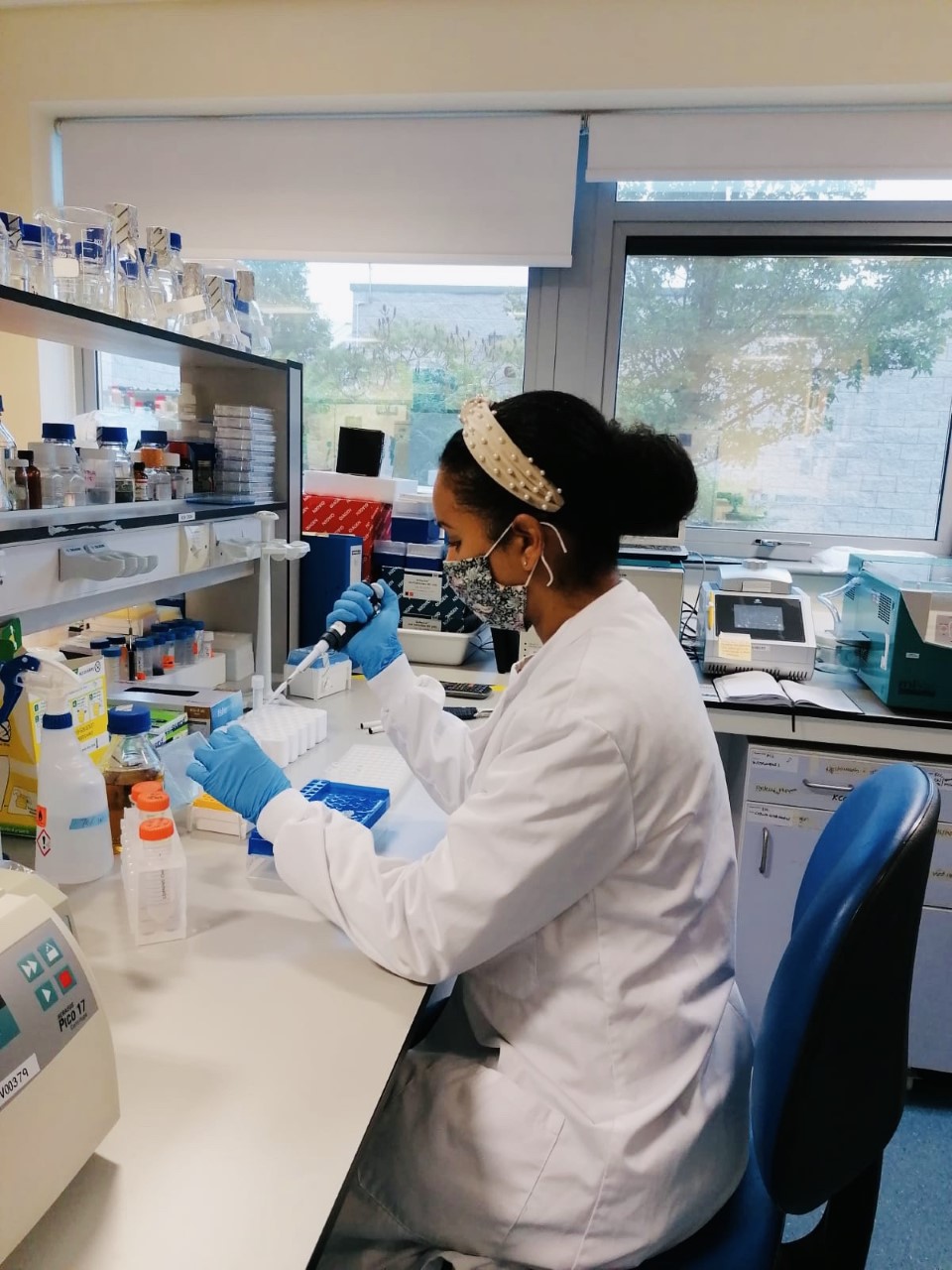
August 4, 2020, by Rob Ounsworth
Our drive to contribute increases the itch to return to lab life
Nottingham Research Fellow Toshana Foster looks forward making a difference as she returns to the labs in the School of Veterinary Medicine and Science
I am part of the One Virology team of researchers at Nottingham and my research focuses on investigating the molecular mechanisms of host restriction of arenaviruses, such as Lassa virus (LASV). LASV, like Ebola virus, can cause severe and fatal haemorrhagic fevers when spread from its natural rodent reservoir to humans. In endemic regions, LASV is responsible for thousands of deaths annually and the complications surrounding the control of the current 2020 epidemic of Lassa fever in Nigeria is exacerbated by the lack of effective treatments and vaccines. Therefore, in my lab we are unravelling key host mechanisms that limit virus spread and that have the potential to influence effective therapeutic strategies.
I am in the final year of my Fellowship and found that the unprecedented landscape of the lockdown meant navigating a mixture of challenges and opportunities. There was the initial panic and anxiety of not being able to generate new data for publication and grants; balancing the joys of childcare with the demands of remaining productive from home is difficult, managing my own expectations particularly in these final stages of my Fellowship incited reflection and maintaining a positive morale and sharing thoughts of uncertainty whilst re-wiring plans, given stalled research efforts, with my recently hired post-doctoral associate was important.
We needed to find ways to make lab life at home work. Virtual lab-meetings allowed us to connect with our peers, share ideas and contribute to research plans. Remote working meant that we formed a better connection with our collaborator in Germany and published an impactful review of key arenavirus research and we have formed new collaborations that have exciting future prospects. We engaged in virtual conferences that we would not have been able to attend otherwise due to costs, travel and personal responsibilities, and increased our knowledge inside and out of the field, thus helping us to plan and prioritise our research aims.
Like many, we are keen to make an academic contribution to the pandemic and so this time also allowed us to form connections, share ideas and develop resource plans towards these efforts. These opportunities increased the itch to return to lab life but as lockdown rules relaxed and the return to work process gained momentum, my anxieties about the return, particularly around safety, increased.
I hope that we continue to embrace
the benefits of connecting with each other
on research, resources and ideas
Toshana Foster
I have to highlight, however, that the Vet School teams, encompassing health and safety, the return-to-research task force, heads of operations and technical staff, involved in allowing our safe return to research deserve immense thanks and credit. The efforts and changes that they have implemented have ensured COVID-safe working practices, including the one-way systems, new remote facility and equipment booking systems and lab occupancy sign-in protocols. I am very grateful to be back in the lab and over the last four weeks, I have been able to make significant progress towards a future publication needed for an impending grant submission.
Working with colleagues who respect these fluid changes has also helped to calm anxieties and there has been an atmosphere of excitement and productivity since returning as we work together to optimise on time in the research space. Having adapted quickly to this work environment, more colleagues will be able to return, to ensure the breadth of the school’s exciting research continues to make global impact.
The pandemic has highlighted to the public the importance and need for scientific research. The lockdown has significantly impacted on our progress towards these efforts with immense impacts on several aspects of our work and life but on reflection, there are some positive and, in the future, there may be some permanent changes to the ways we work.
Remote working has highlighted how intertwined parenting and work schedules are and have shed light on the importance of understanding these personal pressures, amongst many others. In addition, the costs and benefits of moving to a virtual platform for conferences, meetings and training could increase attendance and engagement, as well as enhance knowledge dissemination and innovation.
I hope that moving forward we continue to embrace the benefits of connecting with each other on research, resources and ideas.
Please note: all staff must await notification from their line manager before returning to campus, so this process can be managed safely
Find out more about the University’s recovery planning
No comments yet, fill out a comment to be the first


Leave a Reply